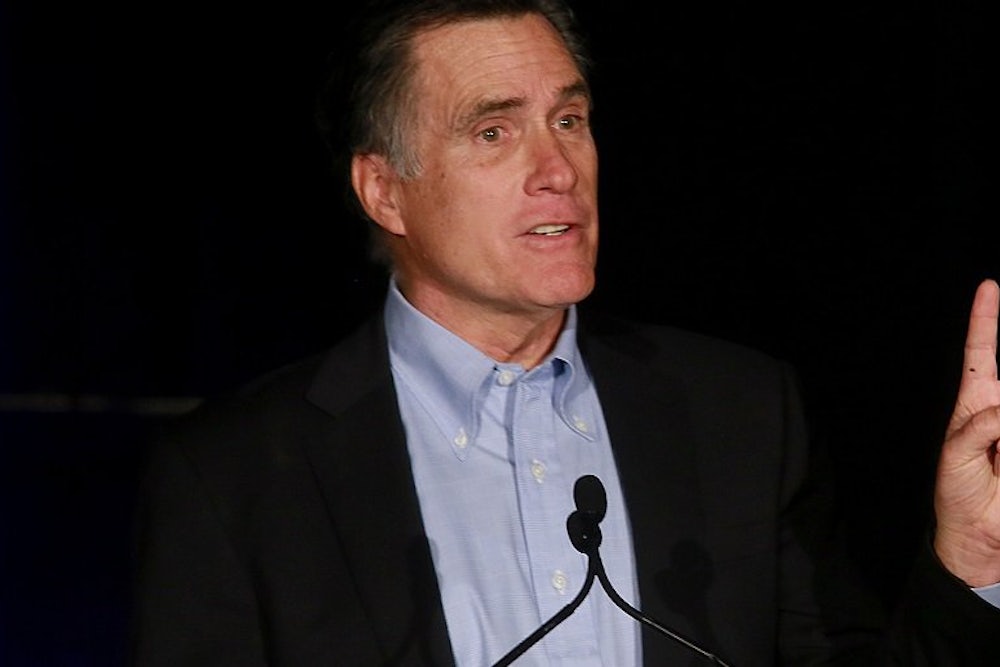Mitt Romney is not running for president. Right-wing radio host Hugh Hewitt broke the news Friday morning that the 2012 Republican nominee won’t seek the presidency for the third time. “After putting considerable thought into making another run for president, I’ve decided it is best to give other leaders in the party the opportunity to become our next nominee,” Romney will tell his supporters, according to Hewitt. If you listen closely, you can hear Jeb Bush and New Jersey Governor Chris Christie high-fiving.
According to Hewitt, Romney will also say that he thinks he could win the nomination. It’s hard to imagine that’s true. If Romney really thought he could win, he’d be running. Ever since he announced that he was considering a run, the entire Republican Party, from the far right to some of his most loyal advisers, discouraged him from seeking the nomination. On Friday, it was Iowa’s David Kochel, a key Republican strategist and former close adviser to Romney, who announced he supported Bush.
So Romney probably made the right move in standing aside. But I wish he had run—and not just because I predicted that he would. For one, the Republican primary would have been more exciting with a Romney candidacy. For months, reporters have hung on every whisper of a potential third campaign. Just Friday morning, the Daily Beast reported that Romney had decided he was running for president—and the media was atwitter over that report. (The article has been updated.)
But there’s a more important reason why I’m disappointed that Romney ’16 won’t be happening: It’s one fewer GOP candidate talking about income inequality. One of the major storylines over the past few weeks was Romney’s newfound concern with it. "It's a tragedy, a human tragedy, that the middle class in this country by and large doesn't believe that the future will be better than the past," Romney told conservatives at a Republican National Committee meeting two weeks ago. "We haven't seen rising incomes over decades.… The rich have gotten richer, income inequality has gotten worse and there are more people in poverty than ever before under this president.”
That’s certainly a new argument from Romney. In January 2012, for instance, he was far more dismissive, even hostile, to discussions about inequality. “You know, I think it's about envy. I think it's about class warfare,” he told NBC’s “The Today Show” in January 2012. Whether or not Romney’s newfound concern for inequality is genuine is impossible to know. He could be choosing that line because an improving economy has given President Barack Obama’s approval ratings a boost and undermined some of the GOP’s normal attack lines against the president. Or maybe this is the real Mitt Romney. We may never know.
But it also doesn’t matter whether or not Romney was genuine. All signs pointed toward his making inequality a focal point of the Republican primary. That’s a good thing, no matter his motives. Already we’ve seen other candidates, like senators Ted Cruz and Rand Paul, echo Romney’s comments about inequality, although with less forceful words than Romney used. At the same time, other potential candidates, like Wisconsin Governor Scott Walker, have tacked to the right, adopting some of Romney’s more hostile tones from his 2012 campaign.
In other words, income inequality is shaping up to be an important issue in the Republican primary. But with Romney out, there will be one less person on the right side of the debate.
